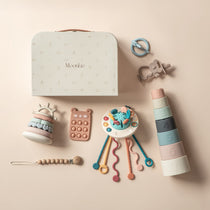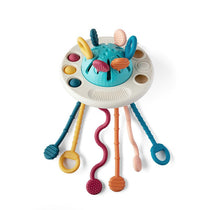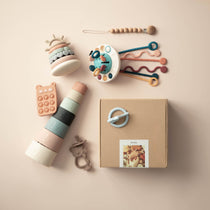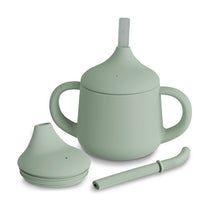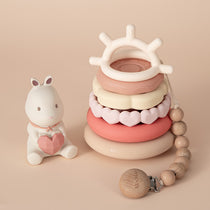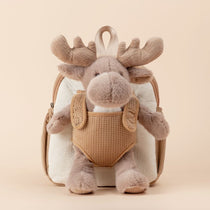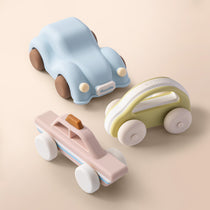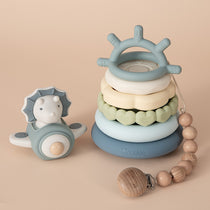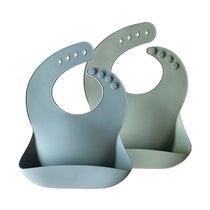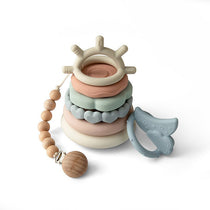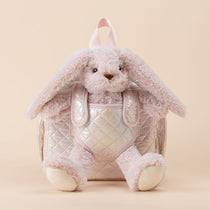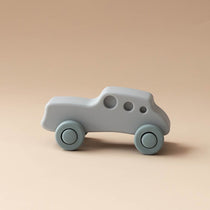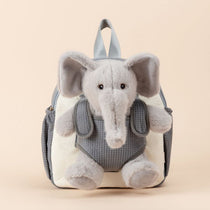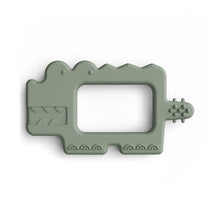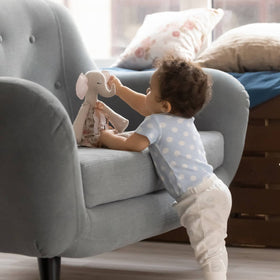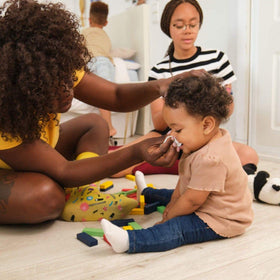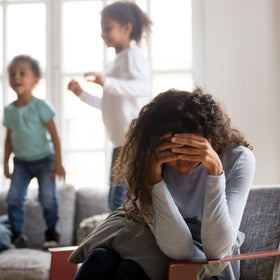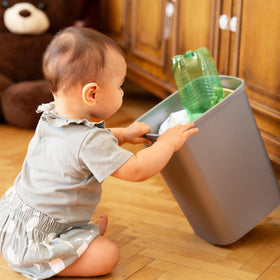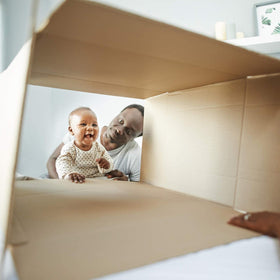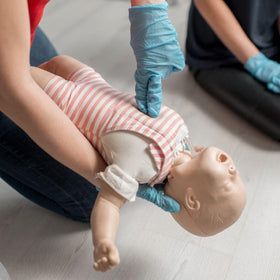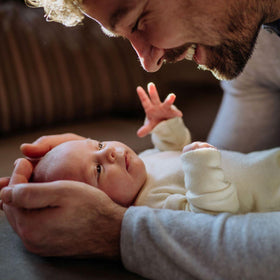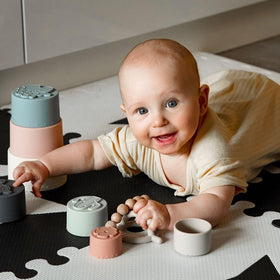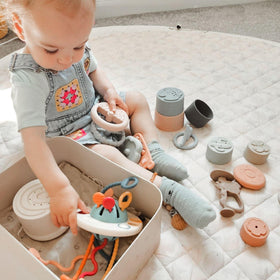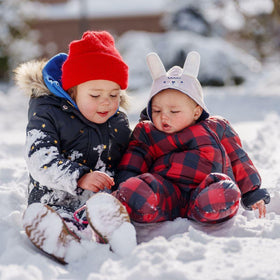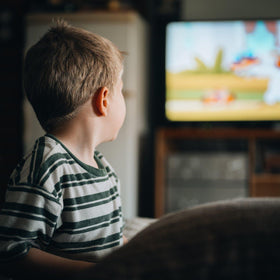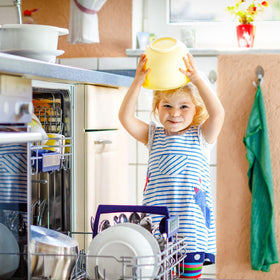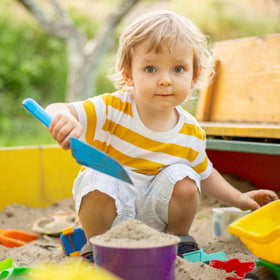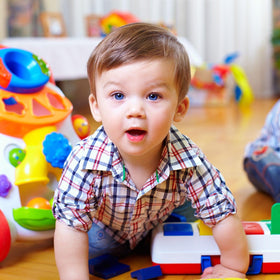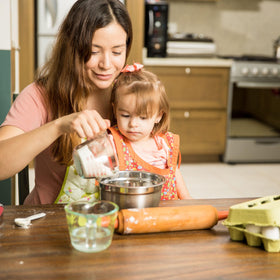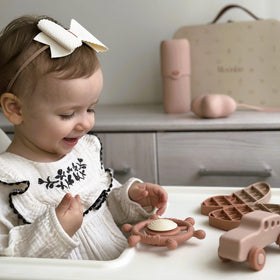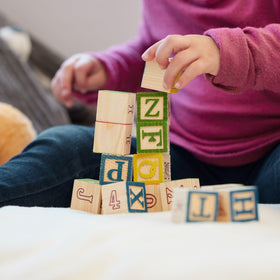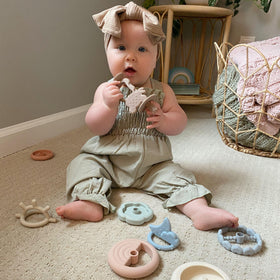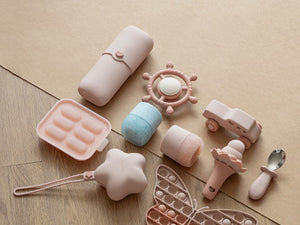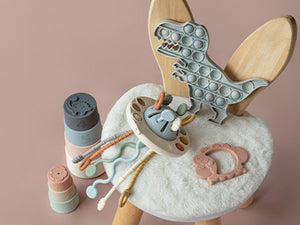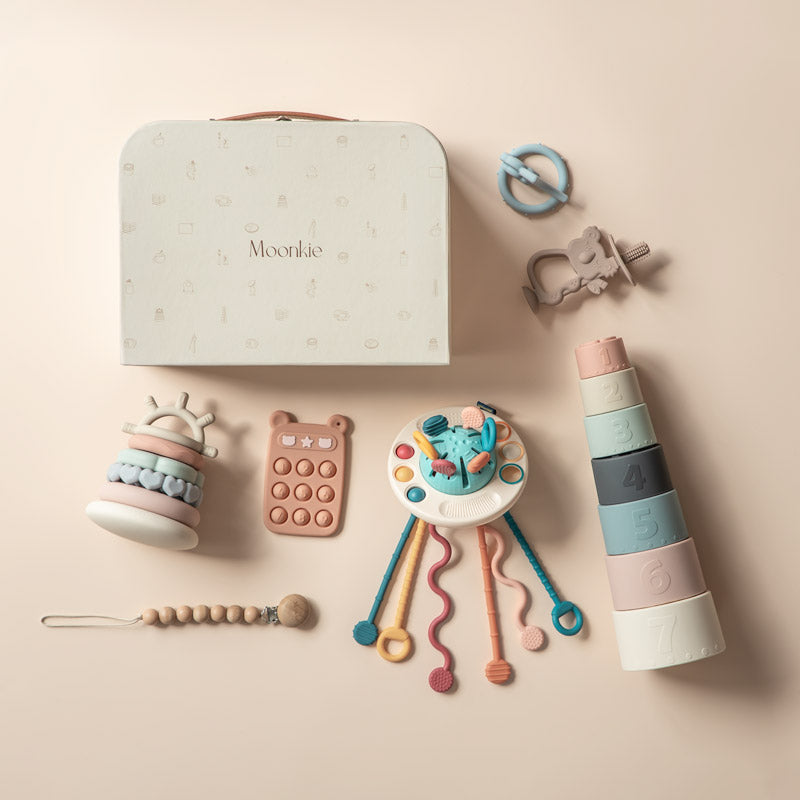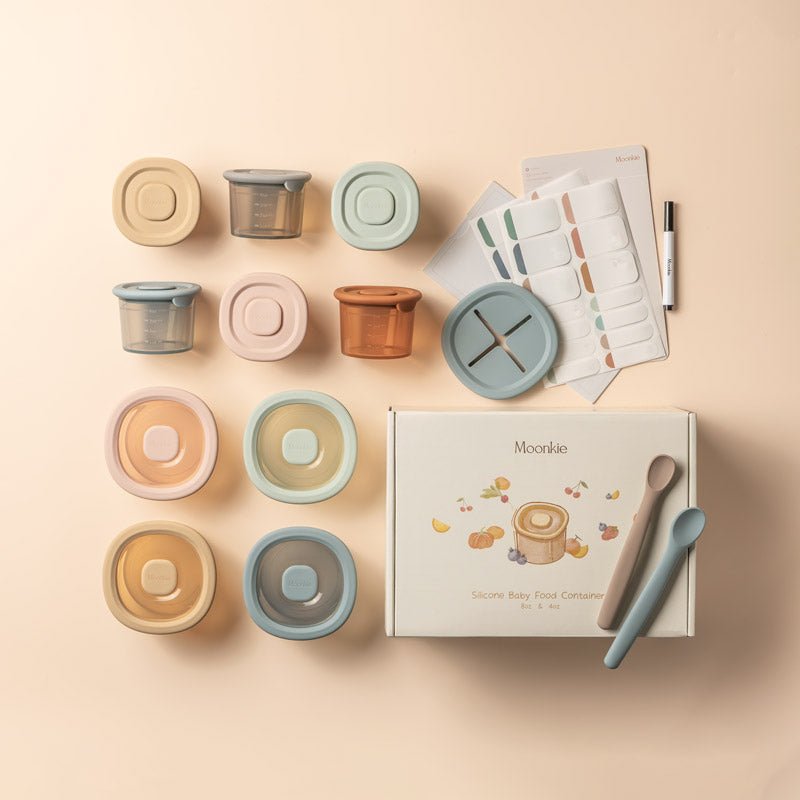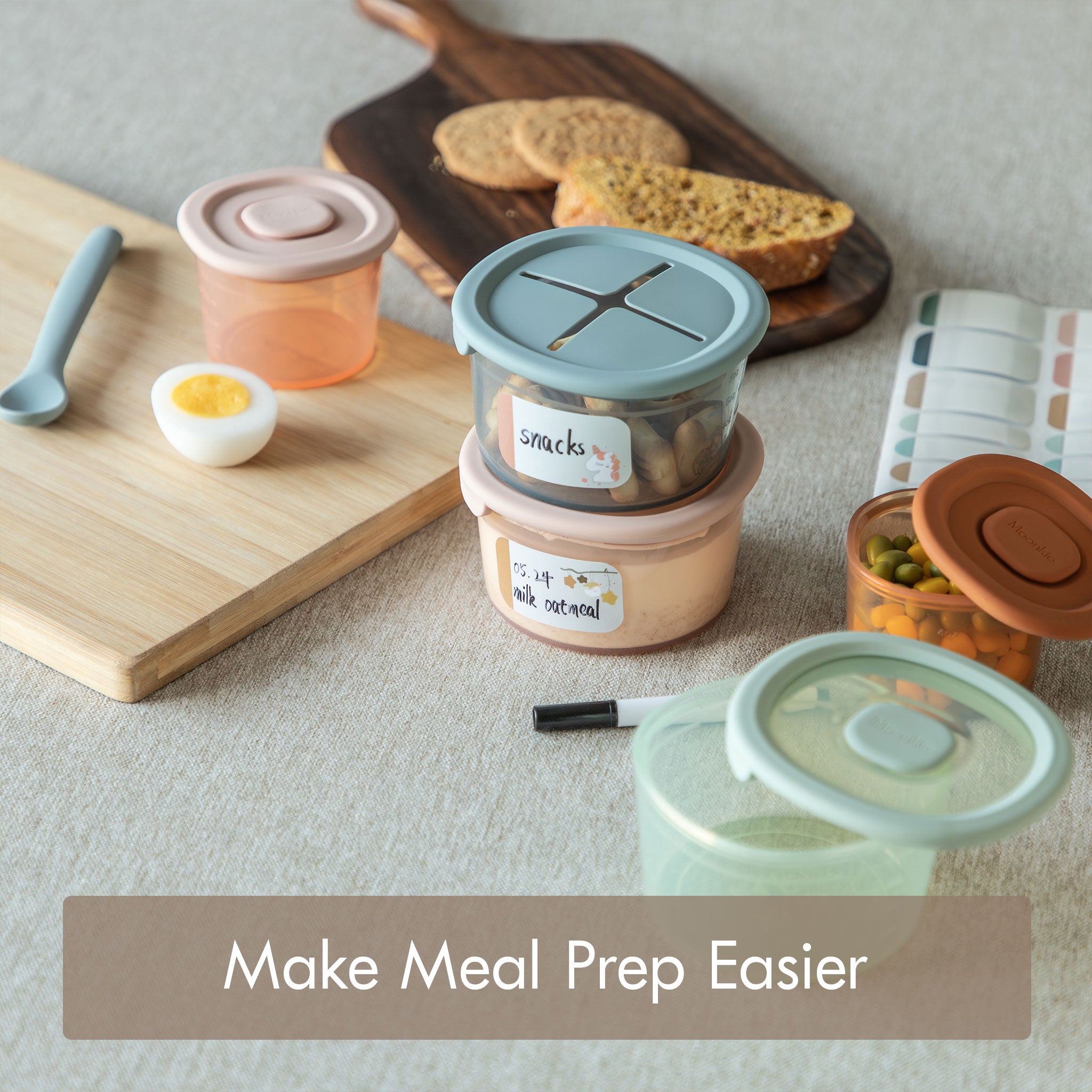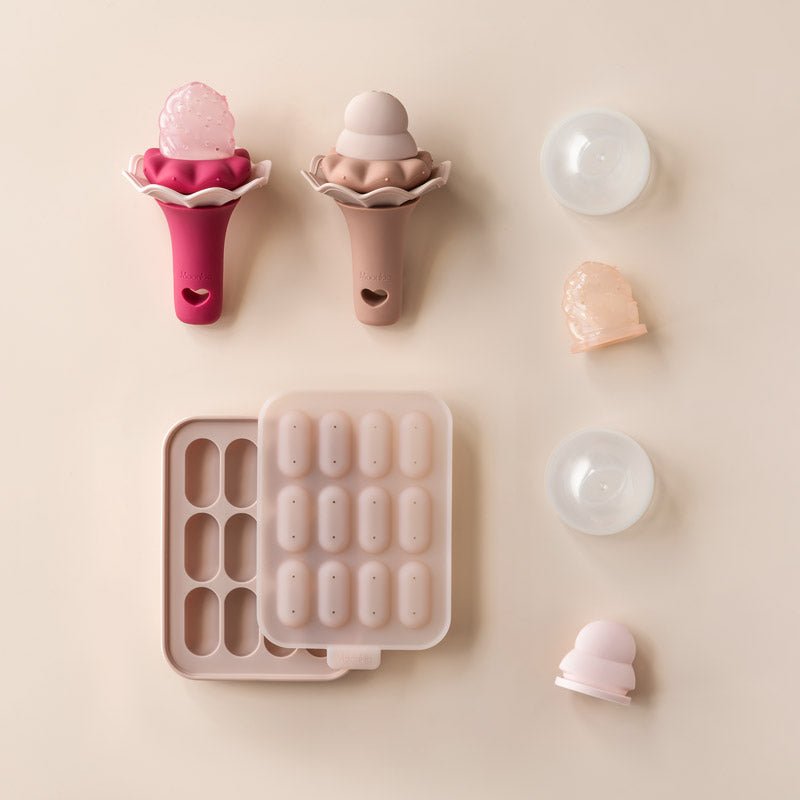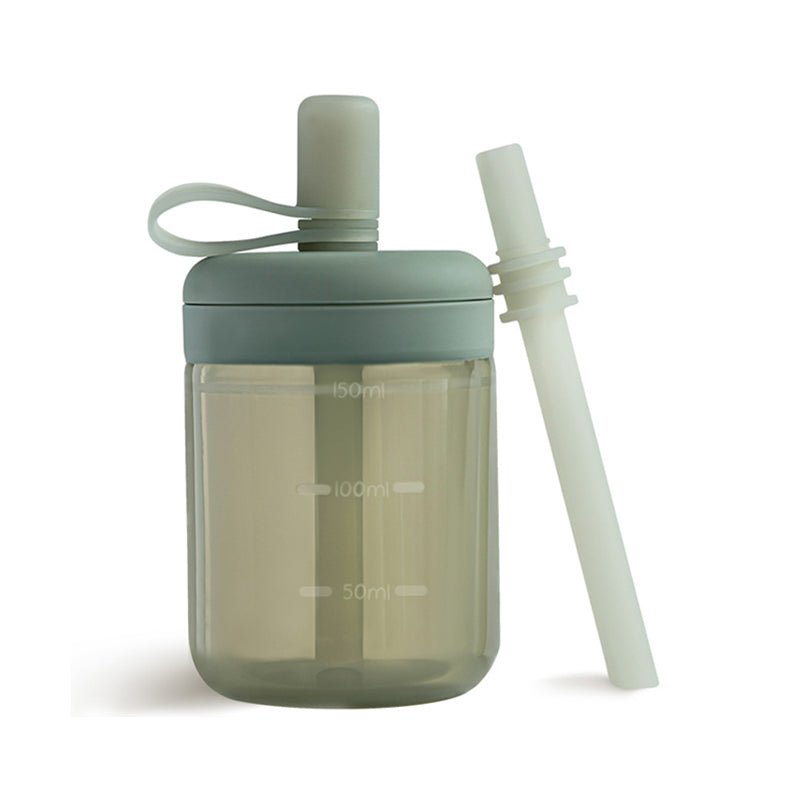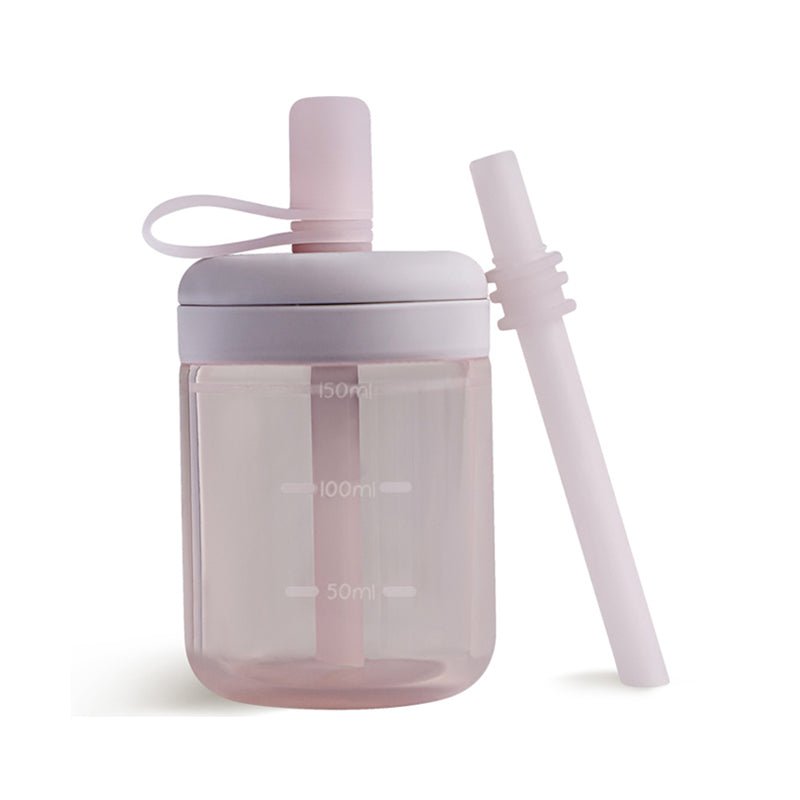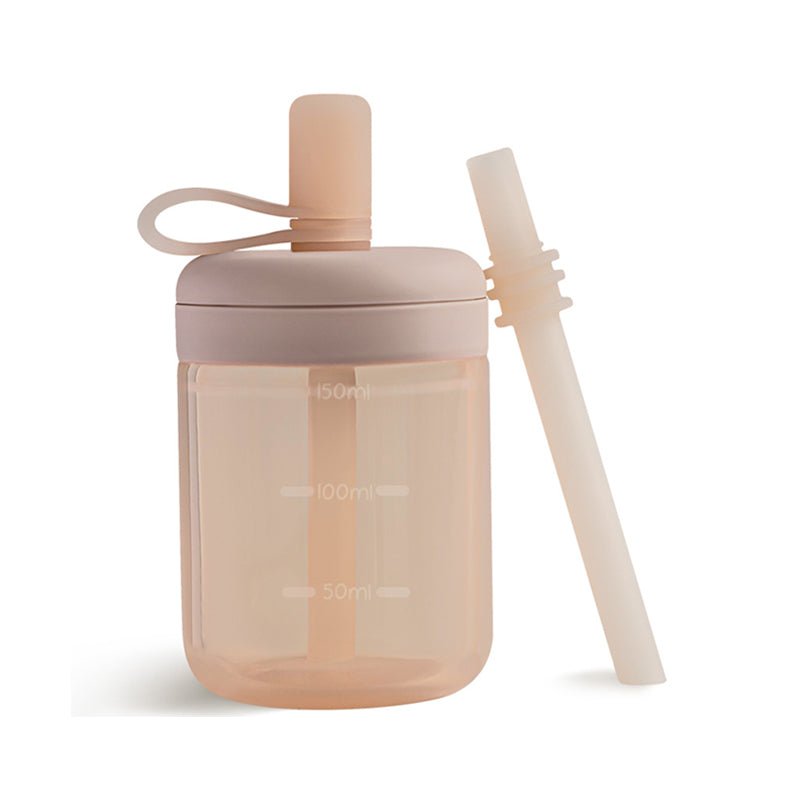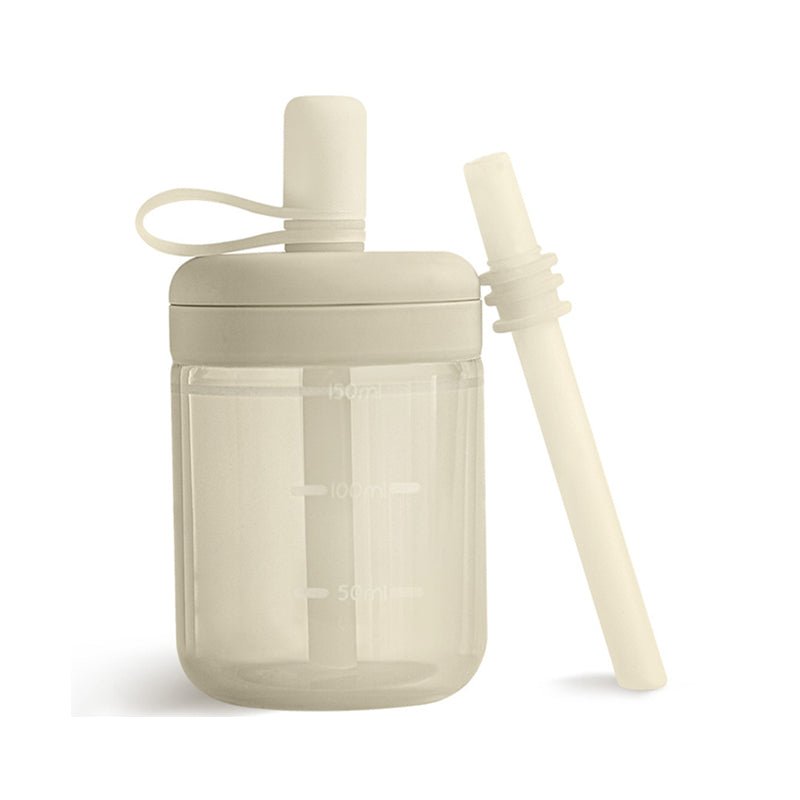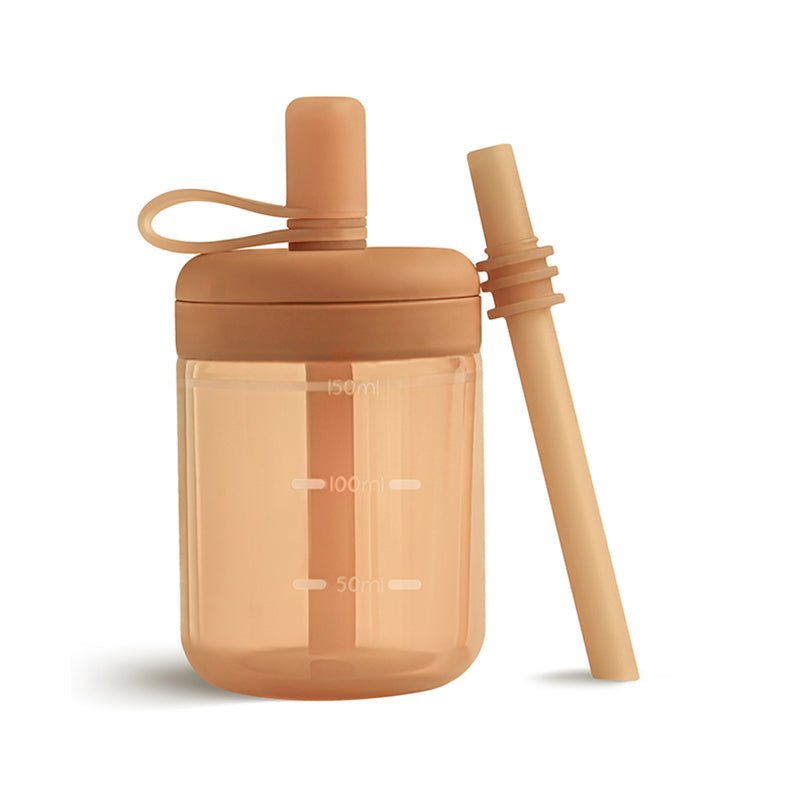With so much free content available on parenting, child development, and mental health, some parents are second-guessing the way they were raised and their own parenting habits. Each parent "messes up big time" eventually, leading them to ask, "Am I ruining my children?"
No parent is perfect. We all yell at times, struggle to control our emotions, fail to be present at every big moment, drop the ball in chores or connections, and crumble under the unrealistic weight we carry. However, the answer is not to say, "Kids are resilient; they'll be fine."
Instead, we should take a long, hard, honest look at ourselves, refocus on what matters most to our children, and take actionable steps toward breaking bad (or terrible) habits and replacing them with good (ideally the best) ones. Does that sound unrealistic, considering everything else you've going on? You're not the only one.
The Unrealistic Expectations of Parenthood
Once upon a time, many families could live well on one income. But for the last few decades, that has been impractical for most American families. The costs of housing, groceries, and healthcare alone have driven families to require that both parents work or seek assistance from programs.
With the cost of daycare averaging between $400 and $1,500 per month in the United States, many young families are stuck between a rock and a hard place (source):
Both parents work to make ends meet and pay for childcare.
Both parents work and leave kids with trusted friends or family members.
One parent works while the other stays home with the kids.
One parent works a full-time job, while the other works part-time and relies on family or friends to babysit for a few hours a week.
Add to finances and busy schedules the expectations we put on ourselves to know what our kids are eating, wearing, and bathing in (chemicals, dyes, etc.) and trying to educate ourselves on our children's development and medical needs so we can support them well. It's no wonder you feel so frazzled!
Understanding the pressure you feel will help you identify your triggers and tendencies, allowing you to better manage your big feelings when your little one experiences intense emotions.
10 Honest Questions Every Parent Eventually Asks
I remember feeling shocked that the hospital just let me walk out of the hospital with my first son. He was so precious, new, and delicate, and I knew he was a blank slate--totally impressionable. I was in awe of how miraculous he was and how so unequipped and ill-suited I felt to be a parent.

Parenting is not instinctual. It takes a lot of persistently intentional practice and self-control to extend nurturing care and grace 24/7 despite pain, illness, and a lack of gratitude. Moreover, it feels like everyone has an opinion on how to care for your child, and you're not doing any of it right.
Add that to your job, running the household, and life's typical turmoil, and you can see why parents always feel like they are failing. But you are not!
It is totally normal to ask questions like the following. I have yet to meet a parent who hasn't! I have arrived at the following answers through my own parenting journey with three kids and foster kids.
Where relevant, I've added resources to help you conduct your own research and draw your own conclusions.
1. What Should I Do When I Break a Promise to My Kid...Again?
As children get older (around 3 or 4 years old), they remember when you don't do something that you said you would do. Unfortunately, they notice sooner than parents think, so by the time they mention it, there is already a long string of broken promises.
Some parents drop the ball because they are so busy and exhausted with the have-tos that they simply forget the promise. What a paradox that parents run around like crazy trying to get everything done so their child can thrive, but the child doesn't thrive without personal time with their parents.
There is simply not enough time in the day to do it all! But your little one doesn't understand that--even if you explain it to her. What she understands is: "My mommy doesn't have time for me" or "I'm not as important as these other things."
So, when your child asks you to play with her, but you cannot do it at that moment, schedule a time that you can. Pull out your phone, open the calendar, and ask her when she would like to schedule a time to play together (as long as it's between or after your have-tos).
Better yet, at the beginning of each month or week, pull out the calendar and block off specific times and days to spend together. Many things will try to flood into that time, so you will have to be intentional and determined to save that time for your kid.
The result? Each successful time that you stave off everything else just for your child will build trust, confidence, and bonding. This works for teenagers, too!
2. What Should I Do After Getting Angry With My Child and Yelling?
Anger is okay, but be careful about how you express it. Yelling is not appropriate because it stresses your child, solves nothing, and teaches your child that yelling is an acceptable way to handle anger. And yet, most of us end up yelling at or around our kids in anger at some point.
Just as you teach your child when you act out in your anger, you also teach your child when you take responsibility for your words and actions afterward (or don't). Sure, you could just bury the occurrence and never mention it again, but it will probably happen again, and teach your child to do the same.
Instead, own up to it! Come back to your child--however young he is--and apologize. "I'm sorry I yelled at you when you talked back to me. That was not okay. I've had a bad day at work, and my head has a terrible headache, but yelling is never okay--especially at the little person I love so much. Please forgive me."
You can then go on to address why your child was talking back. Whether your child forgives you or not is not the point here. The point is that you demonstrate that yelling angrily is wrong and requires taking responsibility and apologizing. Your child will learn to do this, too!
Young children learn by observational learning. Learn more about that and how you shape your child by your own actions and words in Be Careful Mommy Daddy What You Say: Building Your Child's Identity.
3. Does My Anger and Impatience Hurt My Child?
Your anger and impatience affect your child in multiple ways, but the degree of that impact is highly variable. What do you do when you are angry and impatient? Do you make your child feel unsafe? Do you throw things and scream? Do you yell and put all the responsibility on your child?

Being angry is normal; it's an emotion that should not be suppressed but expressed appropriately. Your child needs to learn how to express anger and will learn from you.
What is not appropriate is wielding angry behavior or threats of angry behavior to manipulate your child into obedience. Nor is it appropriate to blame your child and belittle her for your struggles and misfortunes (source).
Furthermore, dumping your frustration and anger about something else on your child is not okay. Frequent yelling, angry outbursts, or blaming are unhealthy habits that must be corrected because your voice in early childhood shapes your child's inner voice for the rest of her life.
Even infants are affected by your words, tone of voice, behavior, and home environment. Learn how in How Does Stress Impact My Baby's Development?
4. My Child Prefers Someone Else. Am I Losing Him?
Babies and toddlers typically cling to their parents and may even switch their preferences between them in certain contexts. However, situations where one parent is not around much due to work, a visitation schedule, or some other interruption in their presence can result in a child's preference for the parent he spends more time with.
It's also possible for a young child to long for the parent he doesn't see much. Bonding by being present, actively listening to your child, and spending quality time together doing what your child loves is crucial to fostering a strong bond with your child. Do that however you can!
Life happens. People die, parents divorce, and some jobs take you away for months at a time. But showing up however you can to support and love on your child will help your little one know that he is loved. You can learn more about bonding with your baby in The Science Behind Bonding with Your Baby: A Comprehensive Guide.
Fathers are important, too! They can play different roles, but having a solid relationship with a father is still a powerful part of a child's growth and development. Read more in Bonding with Your Baby: Why Dads are Just as Important as Moms.
5. My Young Child Is Always in Trouble. Have I Done Something Wrong?
Toddlers and young children are clever. They want and need your attention to thrive. But, if you are busy and often putting them off, they may opt to stir up trouble to get your attention. Bad attention is better than no attention at all.
To be clear, all kids get into trouble, and most of those situations are probably not attention-seeking behavior but attempts to push the boundaries to ensure they are there. This is a regular part of development, and enforcing those boundaries is critical to supporting your child's sense of being loved, cared for, and safe (source).
However, a young child's deliberate attempts to get into trouble, especially in front of you or immediately after you say, "No, thank you," are likely attention-seeking behavior. How to handle that behavior depends on the situation, the child's personality, developmental age, and your history with the child.
Hence, the best thing you can do about attention-seeking behavior is speak to your pediatrician. Your pediatrician will rule out any possible physical causes (impaired hearing, pain, etc.) and point you to a behavioral specialist or another professional who can help you.
6. My Young Child is Not Interested in Books. What Did I Do Wrong?
It's likely that your child simply isn't interested in books. You can control many things in your child's home environment, but you cannot change your child's preferences. If you don't do much screen time with your child, examine your own behavior.
Are you glued to your screen most of the day? Do you read physical books around your child? Do you actively surround yourself and your child with books (in the library, a book nook, or around the house)?
Kids often gravitate to what they see you doing. Monkey see, monkey do. You can also make reading a lot of fun and build it into your daily routine for quality time. Learn more about this inTurning Books into Adventures Your Little One Will Never Forget. A little forethought and effort can go a long way!
Ultimately, your child may not enjoy books. Some kids just don't. But making the overall experience more engaging can help your little one build the skills to sit through a story or two and eventually learn to read.
7. My Young Child Bullies Other Kids. Have I Done Something Wrong?
Bullying is not okay, but not all kids who bully are bad kids. Some are reflecting what they experience at home. Some are naturally more assertive and confident, and they may not realize how their actions and words affect others. Some may resort to bullying to fit in with their peers.
If you hear that your child is bullying other kids, bring it up directly with your child (source). Tell her what you heard and ask for her explanation. For toddlers, using a "feelings" chart and an "actions" chart may help identify what happened and how she felt in the moment.
Next, briefly explain a better way to handle the situation and ensure this rule is followed in your home. Many younger siblings reflect the way they are treated by older siblings at home in their school or preschool.
Also, letting your child see how you handle difficulties and verbally walking yourself through your feelings and frustrations is helpful to your child as she tries to figure out her own emotions and how to act. For example:
Identify the problem: "I feel frustrated because my report was ignored during a meeting at work. I had worked hard to prepare that report, but the boss wasn't interested in it for that meeting. So, I'm frustrated."
Explain what you wanted to do and why that would have been a bad idea: "I felt like standing up and saying that this report is more important than talking about other stuff, but I didn't. That would have upset my coworkers and boss because the stuff they were talking about was important to them."
Share what you did instead: "Instead, I put my report to the side and talked with everyone about what they wanted to discuss. That made me feel a little better and kept everyone else happy."
State what you will do next: "I will meet my boss tomorrow morning to show him my report."
Words Matter
Your child will likely be unable to put words to what happened, what they felt at the time, and what they feel now. Ignoring those feelings will let them fester, sparking mean words and behavior. Blame is a typical result: "You didn't clean my favorite dress when I asked you to, so I won't get to wear it for my friend's birthday party!"

In a room full of kids, blame often leads to shouting, which in turn can lead to hitting. Over time, soured feelings can resurge repeatedly with belittling, ignoring, or incessantly picking on one another--bullying.
At a young age, the odds are that your child was feeling so strongly that she lashed out with blame. If you give into that blame by yelling, blaming, or otherwise escalating the issue, your child will likely do the same to others.
Your child may not have asked you to clean that dress. But that isn't the point. Your child is frustrated that she cannot wear her favorite dress to a birthday party, so in her frustration, she blames you. Instead of blowing up or calling your child out for lying, you can help her deal with her anger by showing her how to voice it more appropriately.
Validate the frustration, not the blame: "You really wanted to wear your favorite dress to that birthday party, didn't you?"
Confirm her reasoning for the desire: "It's a really pretty dress, and you like to wear it to special events."
Remind her of what actually happened without bringing up the accusation: "You wore it for your playdate with Amy yesterday, so it hasn't been cleaned yet."
State the child's desire: "I wish your favorite dress was clean, so you could wear it to the birthday party today."
Redirect to action: "We don't have time to clean it before we leave for the party, so let's get creative. You can still wear your princess shoes, and we can put up your hair with special clips. Which clean dress would look good with those?"
Consequences and Apologies Are Critical
Consequences for bad behavior and offering apologies when due are crucial for establishing boundaries at home, in relationships, at school, and everywhere else. Children need to understand that there are consequences for misbehavior and that they should apologize for hurting others.
Effective consequences vary by age, personality, situation, and behavior. For instance, a teenager bullying another teenager should have different consequences than a kindergartener bullying a preschool kid.
Likewise, a kid who quickly takes responsibility for their actions and tries to make it right may have a different consequence than a kid who repeatedly lies to you. So long as you keep your own temper in check, there is a lot of room for making rules and consequences logical.
8. My Toddler Is Throwing Tantrums Several Times a Day. What's Wrong?
Toddlers and young children can accomplish a great deal, but they often struggle to regulate their emotions. Even little ones raised in a home where anger is handled appropriately struggle to exercise self-control in their anger.
On the one hand, you probably haven't caused your child to throw tantrums or get into trouble often. On the other hand, the way you handle big emotions, pay attention to your child, and control what goes on at home contributes to your child's behavior.
Asking your pediatrician to examine your toddler can help identify any pesky physical issues that may be causing irritability. If your little one is physically fine, then your pediatrician can recommend resources to help you navigate toddler tantrums.
I've also discussed tantrums extensively in a previous article: The Ultimate Guide to Toddler Tantrums: How to Handle Them Like a Pro.
9. Am I Being Too Protective or Permissive?
As a parent, you likely want your child to feel secure enough to grow and express himself while making good decisions. Being too protective can rob your child of the chance to experience disappointment, navigate difficulties, take risks, and make decisions.
However, being too permissive can make it difficult for your child to respect boundaries, self-regulate, take responsibility, work through relationship challenges, and stay accountable.
Striking a balance between being protective and permissive is tricky, and once you figure it out for one stage, your child will move on to the next!
Whether you are leaning too far toward being overly protective or permissive can be determined from several sources:
Self-reflection: What do you do?
Child's Behavior: How does your child respond to situations?
Developmental Appropriateness: Are your rules and consequences age-appropriate for your child?
Listen: What does your child say about you? Do they feel supported and safe or stifled?
Boundaries vs. Autonomy: Does your child have clear rules and consequences? Does he or she also have age-appropriate choices to make on their own each day?
Feedback from Others: What do your trusted friends and family members say about your parenting?
Evaluate the Consequences: Are your kids overly reliant on you? Do they fight you over lots of little things?
10. My Child Is Already 5. Have I Missed the Best Growth Opportunities?
No! Your child's brain is indeed 90% developed by kindergarten, making those first years critical for shaping how your child thinks and learns (source).
However, the brain continues to grow and mature until age 25, so positive interactions and experiences throughout childhood are vital for shaping and strengthening brain connections (source).
Your child will still undergo significant milestones in emotional, physical, and cognitive development in the next few years. As the parent, you play a significant role in helping your child develop well. Be present, be supportive, and listen actively!
In a Nutshell
There have been multiple times in my own parenting journey when I questioned my ability to parent well. Those times were always when I was feeling extremely overwhelmed with work and life events, and my kids were struggling with behavioral issues.
Taking a long weekend to reflect, turn off my devices, and spend time with my kids helped reassure them and refine strategies for handling issues when returning to the fray. And when one kid was particularly stuck, treating them to a hike and dinner (just the two of us) was enough to communicate and sort out feelings.
What do you do when you feel like you are "failing" as a parent?

